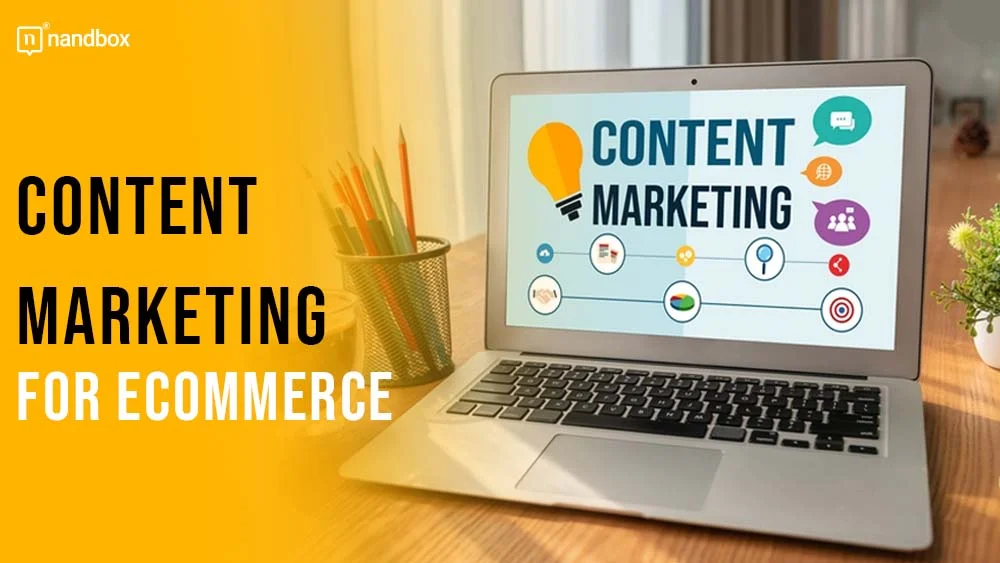Are you currently using content marketing to promote your ecommerce store? If not, you’re missing out on a wonderful opportunity to garner organic traffic on an ongoing basis. If you create evergreen content, you make a once-off investment that pays dividends for years.
One solid blog post can drive traffic to your website for 10 or 15 years easily. Furthermore, carefully crafted posts can establish you as a leader in your field, which builds trust in your brand. Finally, you can create other types of media that persuade clients that buying from you is their idea.
In this post, we’ll look at the topic in more depth.
Understanding the Role of Content Marketing in Ecommerce
Content marketing is more than just creating blog posts or social media updates. It’s a way to drive meaningful interactions with your target audience. You want to create content that resonates with them, and that’s truly useful.
You can also create content that has nothing to do with the product you sell but solves a problem for your audience. By doing so, you increase your brand reputation and reach. Consumers who find your content truly useful are likely to share it.
Defining Your Audience and Goals
Okay, so you’re keen to start. However, you can’t dive right into content creation; you need to define your objectives first. Ask yourself these questions:
- Who are your ideal customers?
- What are their needs, preferences, and pain points?
- What do you want them to do after reading your content?
You’ll need to tweak your content slightly, depending on your goals. For example, if you’re selling a highly technical product, you might want to publish a white paper showing its benefits.
However, if you want to grow your audience, you might publish tips related to products in your inventory. Maybe you need to convince your audience to deal with an ecommerce customer service team.
Set Your Goals
It’s time to set your goals. Make they’re SMART:
- Specific
- Measurable
- Achievable
- Relevant
- Time-bound
Clearly defining your goals gives you a great place to start off with. You can easily see if you’re achieving your aims and make changes if you’re not.
Create Compelling Product Descriptions and Category Pages
Most people forget that product, descriptions, and category pages are a type of content marketing as well. When you craft these well, you convince visitors to make the purchase.
Here, the overall theme is to be very specific about the unique value proposition of each product. Unlike with standard content marketing, you’ll use a more direct and persuasive tone. These are the pages your client gets to after they read your blog or social media posts, so they can be more sales-related.
Be sure to use high-quality images, videos, and customer reviews to build trust. You can, if you have it, also put user-generated content here. Finally, you can link to any tutorials you might have. It’s also a good idea to link to any white pages or other research that highlights the benefits of these products.
Product descriptions and category pages are crucial elements of any ecommerce website, serving as virtual salespeople that persuade visitors to make a purchase.
Blogging and Content Hubs
This is where most of your content marketing will take place. You’ll use your blog to demonstrate your expertise in the industry and establish yourself as a subject matter expert. You’re going to create content that will drive traffic to your brand, make your audience think, and facilitate deeper engagement.
Here’s where you’ll post about your team, products, and brand so your customers get to know you better. You’ll also post useful articles that help them solve problems that they have. Other content ideas include:
- Thought leadership articles
- Guides
- Industry resources
Focus on the Journey
Your focus here is not on selling your products specifically. You’re going to lead the potential buyer through a journey of discovery. Say, for example, that you sell water filters, your might look something like this:
- A whitepaper by respected scientists on the water quality in your area.
- An article about the dangers of the particular bacteria, mineral deposits, and so on in the area.
- A post on how to make the water safe. This would include mentioning water filters in general as one solution.
- A post on the different types of water filters and their efficacy.
- An article about the specific type of water filter you sell and how it deals with the particular problems in your area
- A video testimonial from a client who’s used the product.
Your first priority is to create readable content that’s engaging and will keep human readers entertained. However, you also need to consider that search engines will be crawling your posts, so do use keywords and topics. Also make the posts easy to skim and navigate in keeping with Google’s helpful content update.
You don’t just want stuff in any keywords. Use highly relevant ones that will attract qualified buyers.
Leveraging Visual Content
They say a picture paints 1000 words, and this is especially true in the digital age. Time-crunched consumers are more likely to engage with visual content than long-form written content.
Use this to your advantage by incorporating high-quality images, infographics, videos, and other interactive media. This helps you convey your message succinctly in a format that your users are likely to enjoy and possibly share.
Let’s think back to our example of the water filters. You’ve posted the white paper about the bacteria and other components in the water in your area. Now, bring it home with an infographic that summarizes the information. You could also, if you find it, incorporate a time-lapse video that shows how quickly the bacteria multiply.
Think of it as if you’re telling a story. Look at ways to convey the information so that it resonates with your audience. People are more likely to read and share the infographic than they are to go through the whole white paper. That said, you have the scientific evidence to back up your claims for those who want it.
User-Generated Content and Social Proof
You can create the most compelling content and not get a single sale. Consumers today are highly sophisticated and very good at sniffing out marketing in all its guises. To bring home the message, you need to provide social proof.
This is where your testimonials and other user-generated content come into their own. Encourage your customers to share their experiences on social media, community forums, and third-party review platforms.
You can even run a competition in which they show themselves using your product to generate a buzz. You can then use the content, with their consent, as further social proof. You should display this prominently on your website to build trust.
Content Distribution and Promotion
Many of us think that it’s enough to simply post the content for people to flock to it. Unfortunately, that’s not the way the internet works. You need to build credibility for your website or blog before that happens.
To do so, you’ll need to start driving traffic of your own. You can do this through paid advertising, email marketing, forums, or social media channels. As your posts start to gain traction, they become more credible in the eyes of search engines. Over time, the search engines to your posts.
To further promote your brand, you should seek out guest posting opportunities. Look for high-quality industry-related blogs and websites that would be interested in posting your content. You could, for example, approach a local newspaper to discuss the issue of the water quality in your area. You could then post your infographic and link back to your whitepaper.
By linking to a credible website in this manner, you lend better credibility to your own site and increase its reach.
Conclusion
Content marketing can be one of the most valuable investments you make. However, it’s not just a case of putting pen to paper and hoping for the best. You have to do your research into what your target audience wants to read.
The upside is that by providing useful solutions for them, you build your brand reputation and establish yourself as a subject matter expert





